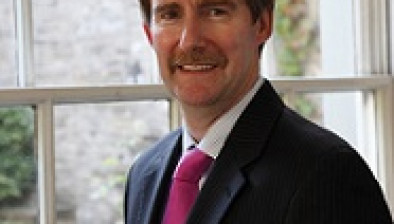Senior academic warns against Irish ‘smugness’ over referendum conduct

Eoin O'Malley
Ireland should not be “smug” about conducting referendums “right while Britain does it wrong”, a senior academic has warned.
Speaking at an event hosted by Dublin Law and Politics Review on Friday night, Professor Eoin O’Malley of DCU School of Law & Government offered his critical analysis of whether recent referendums in Ireland and the UK have advanced the cause of democracy.
He pointed out that recent Irish referendums put forward simple, binary propositions, whereas the UK’s referendum on leaving the EU was more complicated. As a result, he argued that people voted on the basis of side-questions rather than the actual question asked.
Professor O’Malley, an associate professor in political science, said: “Many in the Brexit referendum were voting on issues like immigration from non-EU third countries rather than on the pros and cons of EU membership. We saw the same thing in our own referenda on Nice and Lisbon; some people were citing abortion and water-fluoridation as their reasons for voting No.”
He argued that Irish public opinion had been shown to be in favour of legalising abortion a full three years before polling day, and that the referendum campaigns hadn’t changed the percentages for and against a great deal in the interceding three years.
While referendums have the attraction of letting the people have their say, Professor O’Malley argued that the referendum process “is inherently polarising – people are driven to the extremes. It can be a sectarian count which assigns people to their sects”.
Professor O’Malley concluded that issues of complexity such as Brexit were better addressed by MPs: “Parliamentary democracy should ‘Take Back Control’.” He decried growing partisanship in many parliaments, and gave a novel insight on the reasons for it.
“Parliamentarians have been spending less and less time with each other since the advent of the jet engine,” he said. “Take the United States; before cheap and fast air travel, members of Congress had to stay in D.C. for a considerable amount of time. They were forced to socialise with each other across party lines. As a result, the Congress of that time was more bipartisan and compromises were often struck.”
Professor O’Malley’s address in J.W. Sweetman sparked a lively Q&A section. One audience member pointed to the chaos within the UK House of Commons as evidence that parliamentarians did not necessarily have the edge over the general public when it came to making complex, significant decisions.
Another audience member said that referendums have the advantage of decisively reaching a conclusion with a degree of finality rarely possible in parliament, pointing to how little resistance there has been to the introduction of abortion. Professor O’Malley pointed to the Scottish independence and EU referendums as examples to the contrary, where the issues remain very much unfinished business.
The event was organised by Cornelia-Adriana Baciu and Annelieke Mooij of the Dublin Law and Politics Review, a new group formed three months ago to bring together minds from law, politics, and academia in a common forum.
Kevin Burns, Irish Legal News










